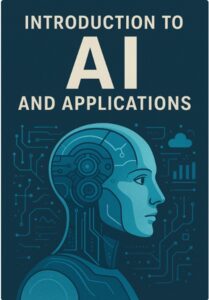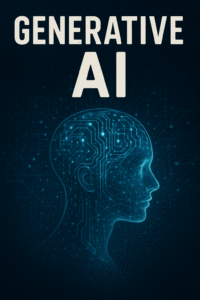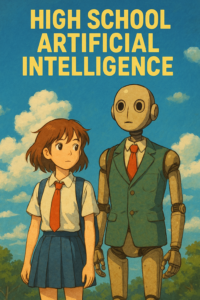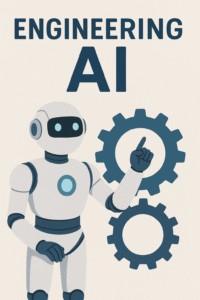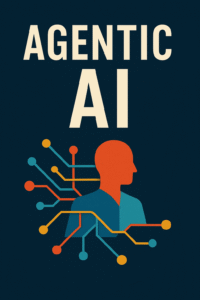As we advance into a more technology-driven future, the demand for specialized computer science skills has reached unprecedented heights. Emerging technologies like Artificial Intelligence (AI), robotics, Internet of Things (IoT), and AI-driven agents are transforming industries and opening up new career paths. For professionals and students alike, the path forward requires an understanding of the key skills that will dominate the field in 2025 and beyond.
Let’s dive into the essential computer science skills needed to stay relevant and competitive in this evolving landscape.
1. Artificial Intelligence and Machine Learning
Artificial Intelligence (AI) and Machine Learning (ML) have become integral to modern technology, transforming industries like healthcare, finance, and logistics. As these fields continue to expand, mastering AI and ML is critical for professionals aiming to stay ahead.
- Algorithm Development: Understanding and implementing various AI and ML algorithms, from supervised and unsupervised learning to deep learning, will be foundational.
- Natural Language Processing (NLP): With growing applications like chatbots and voice assistants, expertise in NLP is in demand for creating AI that can understand human language.
- AI Agents: With the rise of autonomous systems, creating AI agents that can adapt, learn, and make decisions is becoming essential. AI agents are being applied across sectors like customer service, autonomous driving, and personalized marketing.
2. Robotics and Automation
The robotics industry is booming, especially as automation continues to streamline manufacturing, logistics, and even healthcare. Robotics integrates mechanical, electrical, and software engineering, making it a diverse and challenging field with a bright future.
- Embedded Systems and Control Theory: Developing and managing robotic systems requires expertise in embedded programming and control algorithms.
- Sensors and Actuators: Understanding how to work with various sensors and actuators is essential for creating robots that can interact with their environment.
- AI in Robotics: AI-driven robotics requires proficiency in ML, computer vision, and decision-making algorithms to create robots that can perform complex, adaptive tasks.
3. Internet of Things (IoT)
The Internet of Things (IoT) connects devices across industries, from smart home appliances to industrial machinery. As IoT adoption grows, so does the need for professionals who can create and manage these connected devices.
- Network Protocols: Knowledge of protocols like MQTT, HTTP, and CoAP is crucial for IoT communication.
- IoT Security: With the rise in connected devices, securing IoT networks and protecting data is a priority.
- Edge Computing: Processing data closer to its source with edge computing is essential for IoT to reduce latency and enable faster decision-making. Understanding this skill will be critical in applications where real-time responses are needed, such as in autonomous vehicles and healthcare.
4. Programming Proficiency
Programming is a core skill for nearly every computer science role. As applications and systems grow more complex, the ability to write clean, efficient code is fundamental.
- Python, Java, and JavaScript remain popular for software development, data science, and web applications.
- C/C++ are valuable for system-level programming, embedded systems, and high-performance applications, especially in robotics and IoT.
- Functional and Concurrent Programming: In distributed systems, programming paradigms that handle concurrency, such as those in Scala and Erlang, will be in demand.
5. Data Analysis, Big Data, and Advanced Machine Learning
As the volume of data generated grows, the ability to analyze and make sense of this data becomes increasingly valuable. Professionals skilled in data analysis and advanced machine learning can extract actionable insights to drive strategic decision-making.
- Data Wrangling and Visualization: The ability to clean and structure raw data and create visual representations of insights.
- Big Data Technologies: Knowledge of big data tools such as Hadoop, Spark, and Kafka for handling and analyzing large datasets is critical.
- Deep Learning and Reinforcement Learning: Advanced ML techniques like deep learning and reinforcement learning are widely used in image recognition, predictive modeling, and AI agents.
6. Cybersecurity and Cryptography
With cyber threats becoming more sophisticated, cybersecurity is essential for all technology professionals. Protecting data and ensuring network security are fundamental in today’s digital landscape.
- Threat Detection and Prevention: Skills in identifying vulnerabilities and responding to cyber threats.
- Ethical Hacking and Penetration Testing: To secure systems, companies increasingly rely on ethical hackers to identify weaknesses.
- Blockchain and Cryptography: As blockchain finds applications beyond cryptocurrency in sectors like finance, logistics, and healthcare, understanding cryptographic principles and blockchain development will provide an edge.
7. Cloud Computing and Distributed Systems
The shift to cloud computing has accelerated with the rise of remote work, requiring skills to manage, scale, and secure distributed systems.
- Cloud Platforms: Proficiency in AWS, Microsoft Azure, or Google Cloud is now essential as companies increasingly rely on cloud services.
- Containers and Orchestration: Docker, Kubernetes, and other tools for containerization and orchestration are vital for building scalable, reliable applications.
- Serverless Architecture: Developing applications that do not require server management is a valuable skill as serverless computing gains traction.
8. Blockchain Development
Blockchain technology, once reserved for cryptocurrency, is finding new applications across industries. Professionals with blockchain expertise will find opportunities in secure data management, finance, and even IoT.
- Smart Contracts: Developing self-executing contracts on platforms like Ethereum.
- Consensus Mechanisms: Understanding Proof of Work, Proof of Stake, and other consensus algorithms is crucial for blockchain infrastructure.
- Tokenization: Creating and managing digital assets on the blockchain, applicable in sectors from real estate to art.
9. Augmented Reality (AR) and Virtual Reality (VR)
With applications across gaming, education, and retail, AR and VR are set to become more mainstream. Skills in AR and VR development will open doors in industries looking to provide immersive experiences.
- 3D Modeling and Graphics Programming: Experience with tools like Unity and Unreal Engine to build realistic AR/VR applications.
- Spatial Computing and UX Design: Creating intuitive, engaging experiences that maximize user immersion.
- Augmented Reality Applications: With the growth of wearable devices, AR has applications in navigation, retail, and social media.
10. Soft Skills: Communication, Adaptability, and Problem-Solving
While technical expertise is essential, soft skills are equally valuable for success in a tech-driven world. Professionals who can communicate complex ideas, adapt to change, and solve problems effectively will stand out.
- Collaboration Across Teams: As remote and cross-functional teams become common, effective communication and collaboration are critical.
- Adaptability and Continuous Learning: Staying up to date with emerging technologies is essential as the industry evolves.
- Critical Thinking: The ability to approach problems analytically and develop innovative solutions will be highly valued.
Conclusion
The future of computer science will be shaped by advancements in AI, IoT, robotics, and other rapidly evolving technologies. In 2025 and beyond, professionals with skills in these areas will be at the forefront of innovation. By building a strong foundation in both technical and soft skills, individuals can position themselves for success in a tech-centric world that shows no signs of slowing down.




